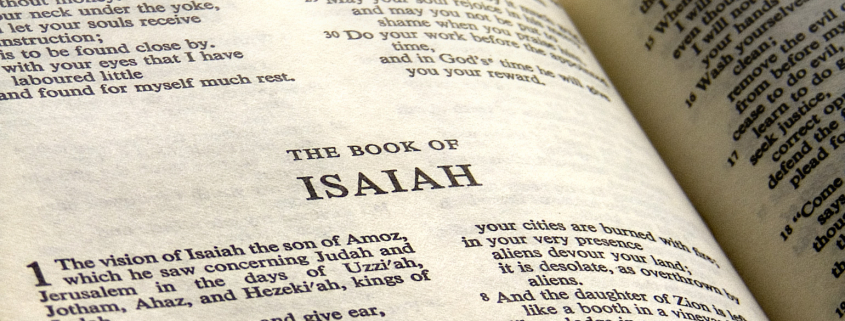Ten Reasons Why Isaiah 53 Points to Jesus
What will the Messiah be like, and what will he do? Many people have asked this question throughout the centuries. The prophet Isaiah had a lot to say in response to this question. In Isaiah 52:13—53:12 (from here on, just “Isaiah 53”), the prophet Isaiah described the Messiah, whom he called the “Servant of the Lord,” and this description fits Jesus perfectly. What is amazing about this passage is that it was written nearly 700 years before Jesus was even born! Listen to Isaiah’s description of the Messianic Servant:
- The Servant came from unimpressive beginnings (Isa. 53:2).
Isaiah 53 describes him as “a root out of dry ground.” No one would expect dry ground to grow much of anything useful. When Jesus taught, the people questioned his authority because he was not from a prominent family. They asked, “Is not this the carpenter’s son?” (Matthew 13:55).
- The Servant was rejected by Israel (Isa. 53:3).
Isaiah’s Servant “was despised and rejected by men.” Jesus was rejected by the majority of his own people. “He came to his own, and his own people did not receive him” (John 1:11).
- The Servant was condemned via oppression and judgment (Isa. 53:8).
According to Isaiah, the Servant was taken away by unjust and oppressive means, which was true of Jesus as well. After the Roman governor Pilate declared Jesus innocent, an angry mob demanded that Jesus be killed (Luke 23:4-25). It was only at the crowd’s insistence that Pilate ordered Jesus to be flogged and crucified.
- The Servant submitted to his sentence without resistance (Isa. 53:7).
Isaiah compared the servant to a lamb that was led to the slaughter but didn’t open his mouth in protest. When Jesus was accused during his trial, “he gave him [Pilate] no answer, not even to a single charge” (Matthew 27:14).
- The Servant suffered for the sins of others (Isa. 53:4-6, 8).
Repeatedly throughout the chapter, the servant took on himself the sins and the punishment that others deserved. This was ultimately Jesus’ purpose in coming to the earth. Jesus was completely innocent, but he took our sins on himself so we would not have to suffer the repercussions (2 Corinthians 5:21).
- The Servant was beaten beyond recognition (Isa. 52:14).
The Servant’s “appearance was so marred, beyond human semblance.” Jesus was flogged before his crucifixion (Matthew 27:26). This meant that Jesus was repeatedly beaten with a leather whip with pieces of sharp metal or bone on the ends, which were designed to shred whatever flesh it touched.1
- The Servant died (Isa. 53:8-9).
Isaiah made it clear that the servant died. “He was cut off out of the land of the living” and buried. Some claim Isaiah 53 is about Israel, but unlike Jesus, Israel has never died as a people. Am Yisrael Chai! In addition, Isaiah clearly distinguished the servant from Israel when he wrote that the servant suffered “for the transgression of my people [Israel].” After experiencing the terrible pain of crucifixion, “Jesus uttered a loud cry and breathed his last” (Mark 15:37).
- The Servant was buried in a rich man’s tomb (Isa. 53:9).
The Servant’s grave was “with a rich man.” It seems antithetical that someone who suffered an extreme punishment for sin would be given an honorable burial, but that is what happened with Jesus. “A rich man from Arimathea, named Joseph… took the body [of Jesus] and wrapped it in a clean linen shroud and laid it in his own new tomb” (Matthew 27:57-60).
- The Servant will be raised from the dead (Isa. 53:10).
After explaining the Servant’s death and burial, Isaiah said his days would be prolonged. The only way a dead man’s days can be prolonged is if he comes back to life. After three days in the tomb, Jesus resurrected from the dead (Matthew 28:1-10)!
- By knowing the Servant, many will be accounted righteous (Isa. 53:11).
Because the Servant bore our iniquities on himself, we can be accounted righteous through putting our faith in him. It is only through faith in Jesus’ death, burial, and resurrection that we are forgiven of our sins and made right with God (Romans 10:9).
What do you think? Do you think anyone else could possibly fit this description?



